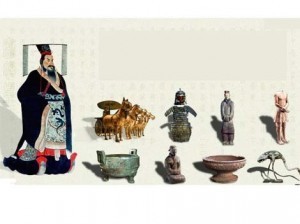Adeline Yen Mah's Blog, page 4
February 20, 2012
The First Emperor is a Tyrant and a Genius Man
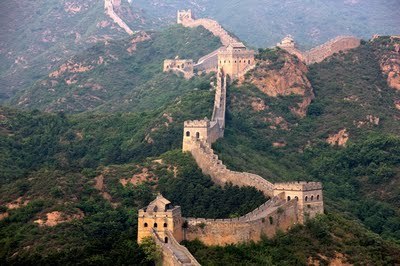
The First Emperor was a tyrant but also a genius. Besides his tomb, he built the Great Wall and 6500 kilometres (4000 miles) of highways, as well as canals, bridges and palaces
February 13, 2012
Boy-King With a Mission (Cont'd 3)
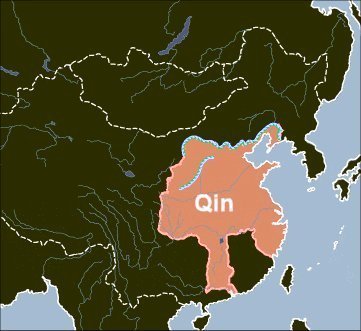
By the time he was 38 years old, his country of Qin had defeated the six other states and unified the country. He gave himself the title of First Emperor of All China. (The English name ʻChinaʼ probably came from the word Qin.)
February 6, 2012
Boy-King With a Mission (Cont'd 2)
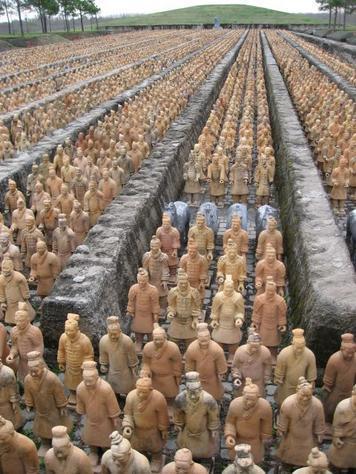
As soon as he became King, he transported 700000 (seven hundred thousand) men from all over China to construct a tomb for him just outside his capital city (close to Xian ). He really wanted to live forever and searched for an elixir of immortality, but a grand tomb was the next best thing. The project continued until he died 36 years later. It became by far the most elaborate tomb in the world, a complex of many chambers around a central tomb the height of a 25-storey 25 building.
January 30, 2012
Boy-King With a Mission (Cont'd 1)

When he ascended the throne in 247 BC, China was divided into seven states long been at war with one another. The boy-king began his reign with three goals. One was to conquer the other six states and unite the country. Another was to be the most powerful ruler in China. The last was to erect the grandest tomb ever built. He succeeded in all three.
January 24, 2012
Boy-King With a Mission
The man who became First Emperor, Qin Shi-huang, was just 13 years old when he became ruler of the Kingdom of Qin in central-west China. Although only a boy, he was determined to succeed and to make his mark in history.
January 16, 2012
First Emperor of All China
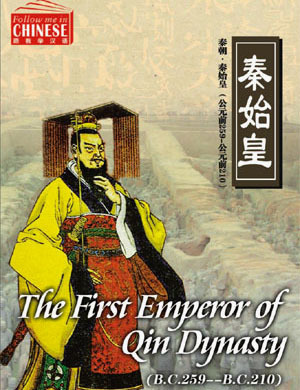
FIRST EMPEROR OF ALL CHINA 259–206 BC
China's written history goes back thousands of years but weʼll begin just 2200 years ago with the man who first united China. He began the Great Wall and built the biggest tomb in history for himself, complete with an army of 7000 clay soldiers. He said his Qin Dynasty would last 10,000 generations. It ended three years after his death.
January 9, 2012
The start of silk production in Constantinople
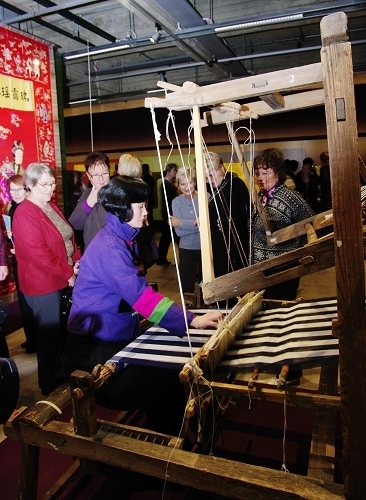
Around 550AD, two visiting monks took the risk. They returned from China to the Byzantine Emperor Justin's court with silkworm eggs hidden in their hollow bamboo walking sticks. That was the start of silk production in Constantinople (present day Istanbul). The Persians leaned the art of silk weaving from the Greeks, but it was not until the thirteenth century that silk production became widespread in Italy and the rest of Europe.
#56- The start of silk production in Constantinople

Around 550AD, two visiting monks took the risk. They returned from China to the Byzantine Emperor Justin's court with silkworm eggs hidden in their hollow bamboo walking sticks. That was the start of silk production in Constantinople (present day Istanbul). The Persians leaned the art of silk weaving from the Greeks, but it was not until the thirteenth century that silk production became widespread in Italy and the rest of Europe.
January 2, 2012
The Story of Silk (Cont'd 4)

Because the silk trade was so valuable, Chinese methods of silk production were a closely guarded trade secret. Anyone smuggling silkworm eggs out of China was punished by death.
December 26, 2011
The Story of Silk ( Cont'd 3)
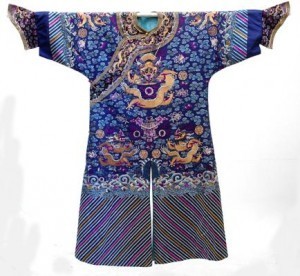
Silk was greatly valued and often used as currency or money. A man's salary would be a certain length of silk per year. Silk garments were worn by Roman emperors, who called the Chinese Seres (Silk people). The clothes are beautiful, light and comfortable, being cool in summer and warm in winter.
Adeline Yen Mah's Blog
- Adeline Yen Mah's profile
- 643 followers


